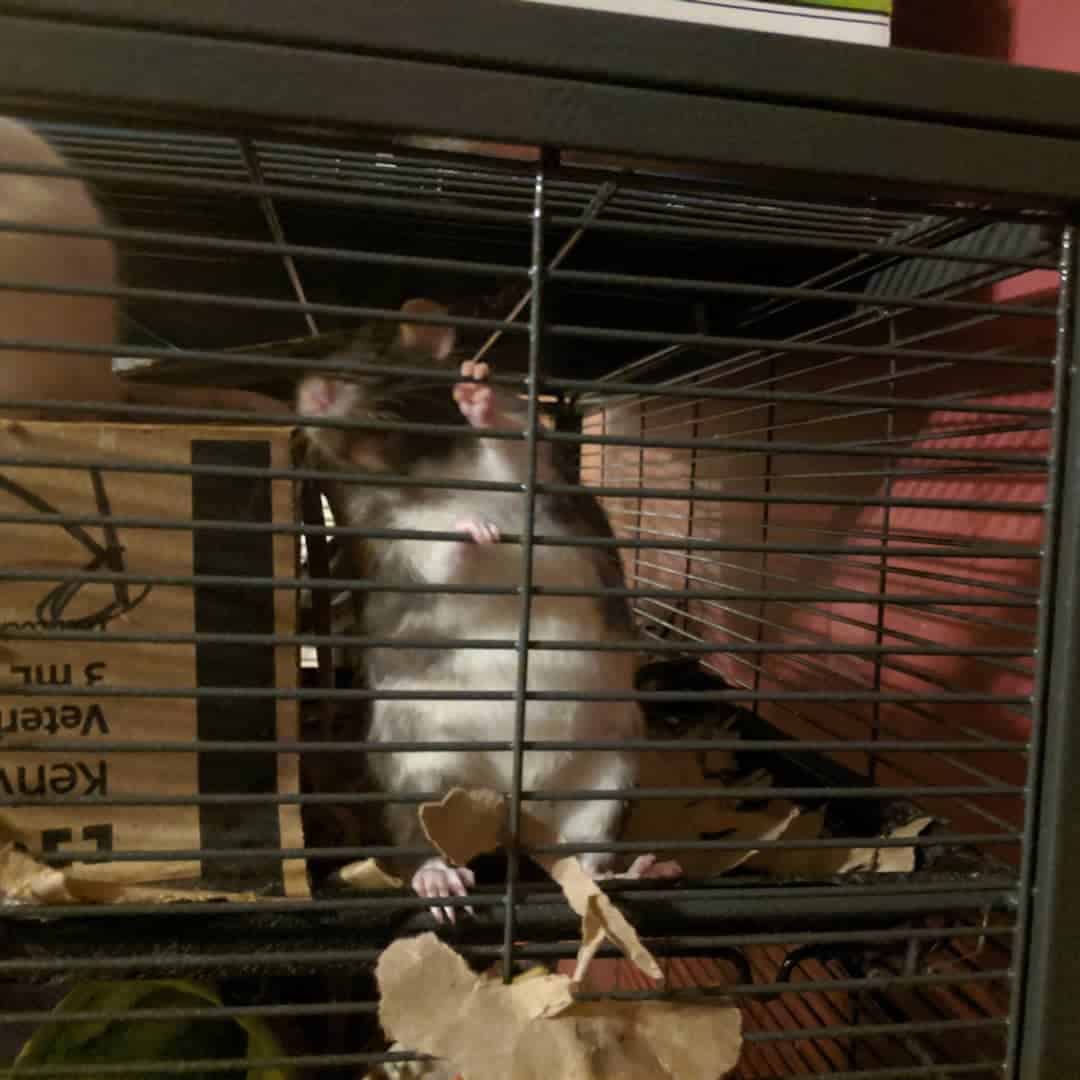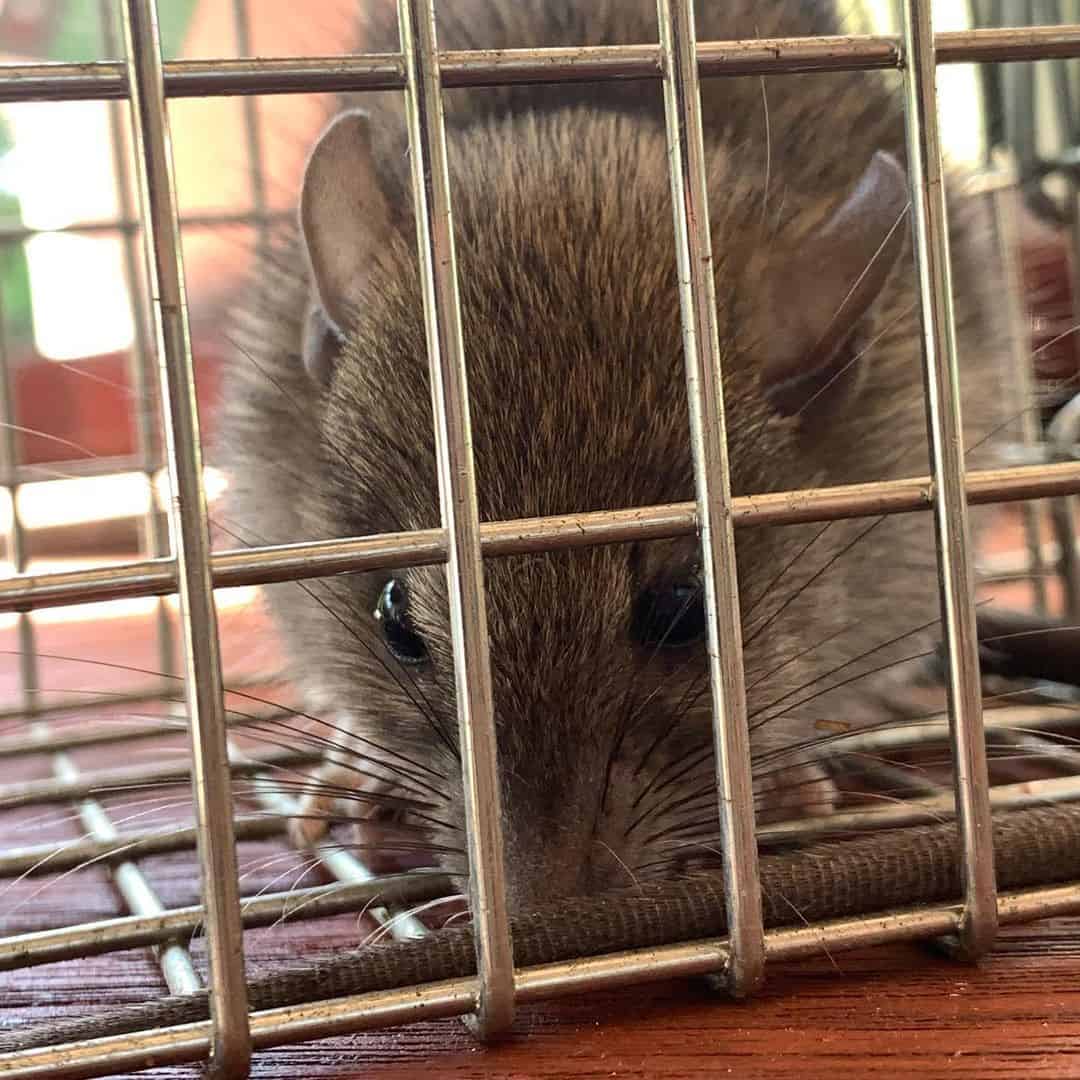Whether you live in an urban or rural area, you will most likely stumble upon mice or rats. They are common pests and can be very tough and challenging for people to get rid of or prevent them from accessing their homes.
Considering that these pests have been troubling us for centuries, people have found ways to deter them and prevent them from coming into our homes, some of those include sealing the cracks and crevices, disposing of garbage correctly, and using wire mesh or deterrents.
Rats have very sturdy and tough teeth, allowing them to chew through almost anything. This brings us to the most important question: Can mice and rats chew through stainless steel mesh? Let’s find out!
Can Stainless Steel Mesh Prevent Mice and Rats from Entering My Home?

Image Credit: unlikelyshannon
Let’s get straight to the point! The answer is: Yes! Rats and mice cannot chew through stainless steel mesh, although they will definitely try! So why do they do that?
Rodents, such as rats, mice, squirrels, porcupines, and their other close relatives, have teeth that grow continuously and are self-sharpening. They have long incisors on both jaws, which are hardened with enamel on their forward face.
Considering that mice use them constantly, their teeth become ground down and worn on the rear sides, resulting in a cutting edge similar to that of a chisel, and we all know what a chisel can do.
Having these teeth is an obvious advantage, allowing them to easily chew through wood, drywall, brick, aluminum, sheetrock, and even concrete. However, when it comes to stainless steel wire mesh, although their teeth are sharp, they are not that sharp after all.
Generally, stainless steel wire mesh and galvanized mesh wire are the best options when it comes to battling these pests. You can apply it to air vents, floor drains, pipes, gutters, chimneys, and other cracks and openings.
What makes mice so problematic, are the feces that they leave behind. Did you know that you can trace the movement scheme of a rat or mouse by following their droppings? Yes!
They use them to mark the territory and indicate breeding status, and they do these things all the time.
In addition, mice droppings are a serious health hazard; ingesting or getting into contact with their ‘poop’ can cause you to contract viruses such as Hantavirus and Salmonella.
Why Can’t Mice and Rats Chew Through Stainless Steel Mesh?
As noted, mice have very sharp teeth that can chew through many things, including cinder blocks, water pipes, mortar, plastics, and even regular wire mesh. However, there are materials that cannot be gnawed or broken even with their sharp teeth-that is galvanized welded stainless steel wire mesh.
The metal stainless steel is known for its strength; actually, it is the second strongest metal in the world. It explains why you can find stainless steel almost everywhere; it is commonly used in construction, building trade, medical technology, vessel manufacture, and other fields.
Stainless steel wire mesh is known for its longevity, so you do not have to worry about it becoming corroded or gnawed. It has several advantages, which include resistance to rust and abrasion.
Because it is so versatile, most people tend to use it and it is very good for various DIY mice and rats control projects, including traps.
Also, it is highly affordable if compared to other options, such as regular hardware cloth, which is relatively expensive.
Some people use DIY solutions made of peppermint oil or specialized mice deterrent sprays. However, if you restrict access to your house, there will be no need for these solutions or traps because the mice will not be able to enter your house in the first place.
Types of Stainless Steel
The two types of stainless steel we commonly find in the commercial world are stainless steel 304 and 316. What’s the difference? The 316 has more strength because of the higher corrosion resistance compared to 304 stainless steel.
Additionally, the 316 is very prominent in producing or manufacturing various construction equipment and machinery, which is meant to last longer and provide excellent strength and resistance.
However, obviously, it is more expensive than the 306 stainless steel. On the other hand, the 304 stainless steel also has great strength and durability and brings some other advantages to the table, which include corrosion resistance.
Unlike 316 steel, 304 stainless steel is relatively cheap and accessible. It can happen that 304 stainless steel succumbs to extreme weather conditions and weakens.
However, it slowly deteriorates, and you can still use it for a long time; in other words, it will still prevent these nasty squatters from visiting your home or garage.
The 304 stainless steel mesh is a good choice for a rat deterrent; just remember to buy the mesh less than 1mm apart per wire. Do not worry; a mouse or a rat cannot go through these tiny openings on the mesh, even if it is 4mm.
However, it is important that the mesh is closely ‘knit’ and closes together because it affects its overall performance, whether it can be easily bent or gnawed. In addition, it will be harder for the mice to get their teeth around the wire mesh and break it down.
What Is the Best Mice and Rats Deterrent?
Even though stainless steel has a number of ‘pros’ when it comes to deterring rats, most homeowners prefer galvanized mesh.
Galvanization is the process in which steel is dipped into molten zinc, or a coating of molten zinc is applied to the metal to offer additional protection and prevent rust.
Galvanized steel has a coat of zinc which makes it highly resilient, durable, and tough, explaining why galvanized hardware cloth is essential when rodent-proofing your home. Furthermore, it is relatively budget-friendly (they will definitely not break the bank).
Think of it as a long-term investment, given that it will last for a long time and is resistant to corrosion and rust in high and freezing temperatures so you will get your money’s worth.
In addition, it is better to pay even a higher amount if it means rodent-proofing your house without additional hustles and costs.
Galvanized Steel Cloth Varieties /Outdoor Pest Control
The best way to rodent-proof your house is to use woven galvanized wire mesh. However, if you have issues with mice and rats in your garden or generally outdoors, we suggest you go with the poly-coated metal or galvanized welded mesh.
They are very versatile, and you can use them around trash cans, make small fences, install landscaping screens, and much more.
The welded galvanized steel mesh is the ultimate deterrent because its creation includes resistance welding- in other words, the metal is made very sturdy and without any filler metals, adding extra strength and resistance.
On the other hand, poly-coated hardware cloth is very bendable, meaning you can apply and adjust it to various openings in your fence and other uses.
Is Steel Wool Good For Deterring Mice and Rats?

Image Credit: moyle_plumbing
Another common option people recommend to those battling with unwanted guests in their house is to buy steel wool. However, is steel wool strong enough to keep the rodents away?
According to Dallas Fort Worth, wildlife control, steel wool is not a good solution for mice and rat control because it can easily be pushed aside. Unlike stainless and galvanized steel, it rusts and does not last very long.
It is suggested that you should opt for galvanized steel mesh, which can be put in place with screws or silicon, depending on the area where you need to install it. People often use steel wool to seal the crack and crevices in their homes.
However, as mentioned, if the steel wool is not combined with copper wool and caulk, there is a chance mice will find a way to get around it.
How to Prevent Mice From Entering My Home?
The best solution for rodent infestation is prevention, which is easy to say when you do not have this problem.
Either way, it is highly important that you seal all the cracks, openings, and crevices in your house, which may serve as a rodent entry point to your kitchen, also known as a wonderful food source in mice’s dictionary.
Yes, it is ‘easier said than done,’ but if you manage to seal off your house properly, you will solve the problem permanently. You are also aware that the crumbs, spills, and food scraps left on your kitchen counter are like open invitations for these pests.
Conclusion
To conclude, despite their very sharp and sturdy teeth, mice and rats cannot chew through stainless steel mesh wire. If you want to improve your ‘game’ when it comes to fighting off these pests, we suggest you buy galvanized steel, the most recommended material for keeping rodents away!
In this article, we have covered why rats can’t chew through the stainless steel mesh, the best deterrent, what types of stainless steel are, and some commonly asked topic-related questions!
How do you deal with rats and mice? Do you use traps like most people or do you have your own solution? If you have questions or want to share your thoughts, fire away!
